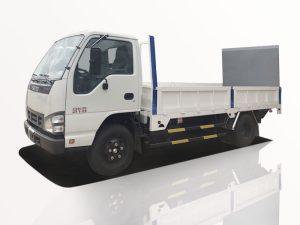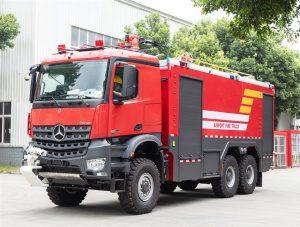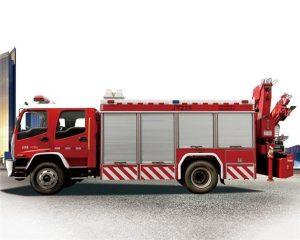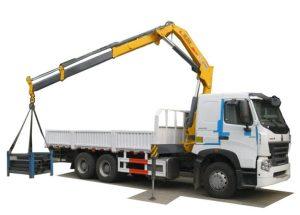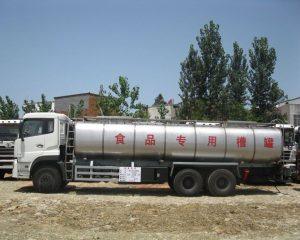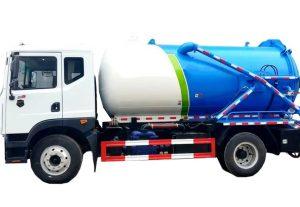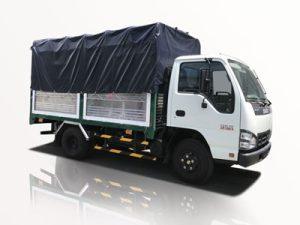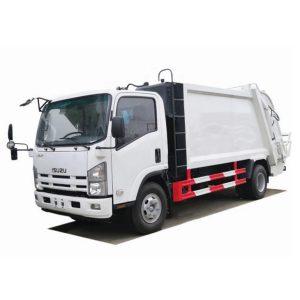Monday to Saturday - 8:00 -17:30
Discover the Best Street Sweeper Trucks for Sale: A Comprehensive Guide
When it comes to maintaining clean streets and ensuring public safety, street sweeper trucks play an essential role. From city municipalities to private contractors, many organizations rely on these vehicles to manage waste and debris on roadways. If you are in the market for street sweeper trucks for sale, this guide will provide you with in-depth insights into their specifications, types, purchasing options, and much more.
Understanding Street Sweeper Trucks
Street sweeper trucks are specialized vehicles designed for cleaning streets, parking lots, and other paved surfaces. These trucks utilize various technologies to collect leaves, dirt, trash, and other debris, making them invaluable for urban maintenance. In this section, we explore the core components, how they work, and why they are essential for communities.
Core Components of Street Sweeper Trucks
Street sweeper trucks consist of several critical components that allow them to perform efficiently:
- Brooms: Rotating bristles that sweep debris toward the center of the vehicle.
- Vacuum System: This component sucks up dust and smaller particles.
- Water Tanks: Used to suppress dust and improve cleaning efficiency.
- Chassis: The base structure of the truck, supporting all components.
- Control System: Provides operators with various controls for adjusting broom rotation speed and vacuum suction.
How Street Sweepers Work
The operation of street sweeper trucks is fairly straightforward:
1. The driver operates the truck, which positions the brooms to sweep debris into the center.
2. The vacuum system collects the debris, minimizing dust emissions.
3. Debris is carried into a storage compartment, which can be emptied later.
Types of Street Sweeper Trucks
Depending on your specific needs, various types of street sweeper trucks are available for sale, including:
Mechanical Broom Sweepers
These are the most common types of street sweepers, utilizing a mechanical broom to collect litter. They are often preferred for their lower operational costs.
Vacuum Sweepers
Vacuum sweepers are used for more intensive cleaning operations and can effectively remove fine dust and smaller debris.
Regenerative Air Sweepers
Combining the principles of mechanical and vacuum sweepers, regenerative air sweepers use air currents to lift particles from the pavement.
Electric Sweepers
As sustainability becomes increasingly important, electric street sweepers have emerged as a valuable option, featuring quiet operation and zero emissions.
Factors to Consider When Buying Street Sweeper Trucks
If you are in the market for street sweeper trucks for sale, there are several important factors to consider:
Budget
Your budget will heavily influence the type of street sweeper you can afford. Prices vary widely based on make, model, and features.
Size and Capacity
Consider the size of the truck and its debris-carrying capacity. Larger trucks can handle bigger jobs, while smaller trucks may be more agile for urban environments.
Engine Type
Diesel engines tend to offer more power but can be less environmentally friendly compared to their electric counterparts.
Ease of Maintenance
Some models may require more frequent maintenance than others. Consider the availability of service and parts when making your choice.
Where to Find Street Sweeper Trucks for Sale
Here are some of the best places to look for street sweeper trucks:
Dealerships
Local and national dealerships offer new and used street sweeper trucks, often with warranties and service support.
Online Marketplaces
Websites like eBay, Craigslist, and specialized equipment marketplaces provide a broad range of new and used options. Always check seller credibility.
Auctions
Government and industrial auctions often feature street sweeper trucks at competitive prices.
Manufacturer Websites
Reputable manufacturers list their available models on their websites, allowing you to contact them for quotes and specifications.
Financing Options for Street Sweeper Trucks
Investing in a street sweeper truck can be significant. Consider these financing options:
Loans
Traditional bank loans provide upfront capital, which can be paid off over time.
Leasing
Leasing can help you save on initial costs and allows you to return the vehicle after a predetermined period.
Government Grants
Some municipalities offer grants or subsidies for environmentally-friendly street cleaning solutions.
Tips for Maintaining Street Sweeper Trucks
Proper maintenance is crucial to prolong the life of your street sweeper truck. Here are some tips:
Regular Inspections
Schedule consistent inspections to identify wear and tear early.
Keep Brooms Clean
Regularly clean the brooms and replace them as needed to maintain efficiency.
Monitor Fluid Levels
Check oil, coolant, and hydraulic fluid levels frequently to ensure optimal performance.
Follow Manufacturer Guidelines
Always adhere to the maintenance schedule provided by the manufacturer for the best results and warranty protection.
FAQs about Street Sweeper Trucks for Sale
1. What is the average cost of a street sweeper truck?
The average cost of new street sweeper trucks can range from $150,000 to $400,000 depending on the model and features. Used trucks may cost considerably less.
2. How do I know if a used street sweeper is in good condition?
Check the maintenance history, inspect the mechanical components, and take a test drive. It’s often advisable to have a mechanic examine the vehicle.
3. Are electric street sweepers worth the investment?
Yes, electric street sweepers can save money in fuel costs and upkeep while providing a quieter and greener cleaning solution.
4. What is the lifespan of a street sweeper truck?
With proper maintenance, street sweeping trucks can last anywhere from 10 to 15 years.
5. Can I finance my street sweeper truck purchase?
Absolutely! There are multiple financing options available, including loans, leasing, and potential government grants.
6. Are there any special training requirements for operating street sweeper trucks?
While specialized training is not always necessary, operators should be familiar with the controls and safe operating procedures to ensure effective and safe cleaning operations.
| Type of Street Sweeper | Pros | Cons |
|---|---|---|
| Mechanical Broom Sweepers | Lower costs, easy to operate | Less efficient for fine debris |
| Vacuum Sweepers | Effective on fine dust, better for intensive cleaning | Higher fuel cost, maintenance-intensive |
| Regenerative Air Sweepers | Excellent for various surfaces, efficient in dust control | Higher purchase price |
| Electric Sweepers | Environmentally friendly, lower operating costs | Higher initial cost, limited range |
Real-world Applications of Street Sweeper Trucks
Street sweeper trucks can serve multiple applications:
Cities and Municipalities
Most cities utilize street sweepers for regular street maintenance to ensure public spaces are clean and free of hazards.
Construction Sites
A construction project often generates considerable debris, and street sweepers help maintain cleanliness, ensuring compliance with regulations.
Parks and Recreational Areas
Keeping parks free from litter enhances the visitor experience, and street sweepers can efficiently manage these areas.
Events and Festivals
Events that draw large crowds create significant litter; street sweepers are often deployed during and after such events to maintain cleanliness.
Private Contractors
Private contractors often invest in their own street sweepers to offer services to municipalities or private clients.
Conclusion
Street sweeper trucks are crucial for maintaining cleanliness and safety in urban environments. When considering a purchase, it’s essential to weigh the different types, factors affecting your decision, and financing options available. With proper maintenance and operation, a street sweeper truck can provide years of valuable service, ultimately contributing to community health and aesthetics.


